When I heard that the television pundit and all-round nepot Kelly Osbourne had gone into ‘food rehab’ upon gaining weight, I fair choked on my cronut. Crumbs! Is there any pleasure, weakness or habit that isn’t pathologised these days, even stuffing oneself out of sheer molten gluttony? I read on; incredibly, people were praising ‘strong’ Kelly and ‘brave’ Kelly. I made a memo to myself to mention to the svelte checkout girl at my local Tesco how brave and strong I was next time she raised an eyebrow at the amount of sweets and crisps I was giving a good home to.
Every woman seems to be strong and brave at the mo. Those who make themselves vomit after eating, those who starve themselves, those who slash at themselves. (Why not give blood and help others while harming yourself? Then at least something good’s coming out of it.) There was a TV commercial for deodorant awhile back which proclaimed boldly ‘EVERY woman is strong!’ What, even gold-diggers wearing heels so high they have to be assisted from bar-stool to bathroom while keeping a weather eye out for Premier League football players? A whole bunch of media broads got cross when L’Wren Scott was described as Mick Jagger’s girlfriend, protesting that she was, rather, a Strong Woman. But why? When I was growing up, the only Strong Women you ever heard of were long-gone circus freaks, or those Eastern Bloc shot-putters who were sniggeringly prevailed upon to take thrillingly named ‘sex tests’ by the harrumphing old Olympic committee.
These days you can’t move for them. I like tough broads, so you’d think I’d be down with this linguistic development, but I must say I shudder with distaste on nine times out of ten hearings. Just like men, women are not all brave and strong, any more than we can all run fast or write well. A dry drunk, a slasher, a puker or a gorger is particularly not strong or brave. If Kelly Osbourne is strong and brave for going to food rehab, then what words do we use about, say, women facing death in order to cast their vote in Afghanistan? If all women are ‘strong’ just because they sweat a bit in the gym — as in the deodorant ad — then what do we call the women in my friend Leila Segal’s photography exhibition ‘Voice of Freedom’, which opens in London next week and examines the impact of modern-day slavery on those who leave their African homes to set out for the safety of Israel and are tortured and trafficked on the way? As Leila says, ‘Choosing to live after you have been “sold” by a man you loved, then repeatedly raped and tortured; watched your kidnappers bury people alive in front of you; seen people beheaded. Choosing not only to live, but to publicly tell the story of what has been done to you to protect other young women, risking shaming and contempt on your own community. Choosing to love and trust again. That is strength.’
Brave and strong are important words; to overuse them, in the attempt to make women feel better about themselves, is a betrayal. Especially considering that every nation has a vast and mostly silent army of brave and strong women; the victims of the laughably cosily named ‘domestic violence’. I was once one of them, as were all of the co-founders of End Of, a pop-up fundraising campaign which has organised a party-for-pay on the evening of 29 April at Hove town hall. We were the lucky ones — we escaped, to not merely survive but thrive in our hard-won freedom. Two women a week are not so fortunate, and are murdered in this country alone by partners or ex-partners. In every country in the world, violence against women is so consistent and epic that it might well be called the longest terrorist campaign in history.
In India, they have the pink-clad women of the Gulabi Gang, who visit abusive husbands and threaten to beat them with large sticks unless they stop hitting their wives; here in Hove, where such behaviour is frowned upon, we are holding a frolicsome evening of music, reading and shameless disco-dancing under the End Of banner. Our actions may be frivolous, but our intent is true; to raise money for Rise, the Brighton domestic violence charity. Across the country, nearly 200 women a day — a day — are being turned away from refuges, while prosecutions are falling, both as a result of government cuts. More British women were killed through men’s violence last year than British troops killed in Afghanistan in the past three years.
When I thought of the name of our event — End Of — I didn’t for a moment mean it to seem as if I believe that a few hundred souls drinking and dancing on a school-night somewhere on the south coast will bring an end to this epidemic of hatred. Our aim is simply to raise a bit of cash for an admirable charity, and to add our voices to the increasing demand that domestic violence be perceived as a public rather than a private issue, and as a hate crime equivalent to that of racial or homophobic violence. It’s all too easy to throw up our hands in horror at the Indian rapes, or tut-tut over the Pistorius trial. But in my opinion, a society which does not take active steps to prevent the murder of two members of a disadvantaged group each week — a group who are attacked because they are women as surely as gay people are attacked for their sexuality or members of minority racial groups for their ethnic origin — cannot truly be called a civilised society. We are not saying that our campaign is the End Of domestic violence — but it may well be one tiny step towards the end of the beginning. We may not wear pink saris and carry big sticks, but we are legion, and we’re definitely coming to get you. That’s a threat and a promise, from the brave and the strong, both living and dead.
Got something to add? Join the discussion and comment below.
Get 10 issues for just $10
Subscribe to The Spectator Australia today for the next 10 magazine issues, plus full online access, for just $10.
Rod Liddle is away.
You might disagree with half of it, but you’ll enjoy reading all of it. Try your first month for free, then just $2 a week for the remainder of your first year.


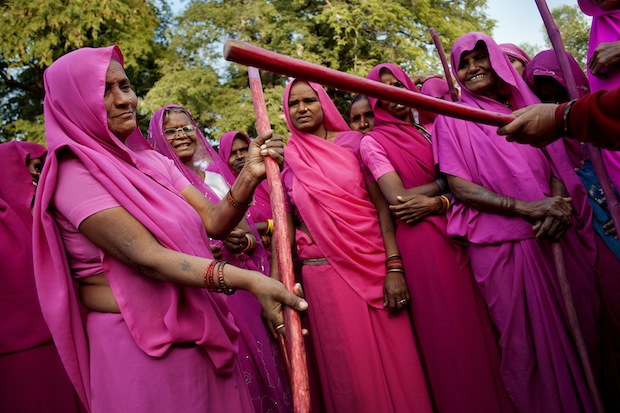
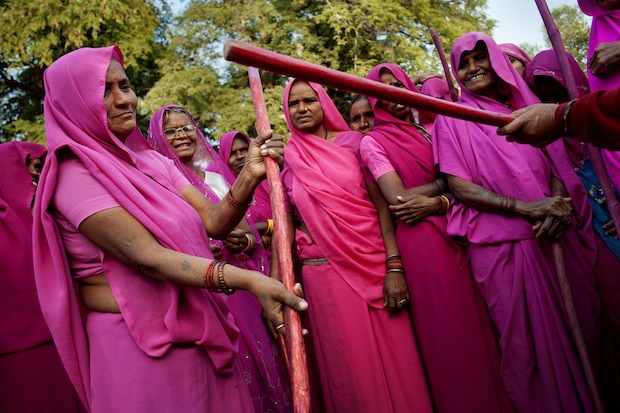
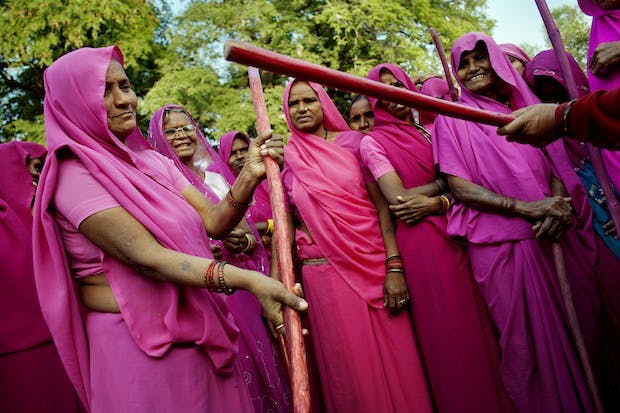
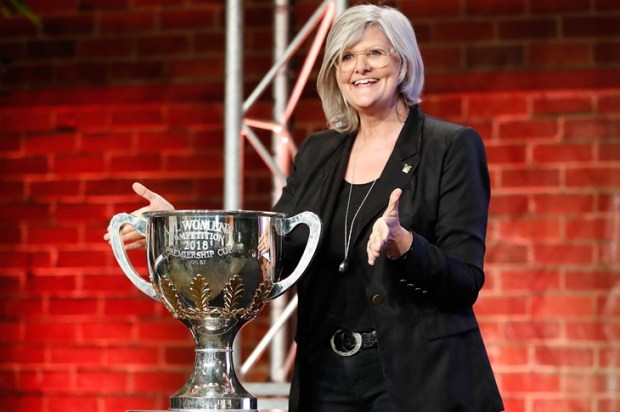
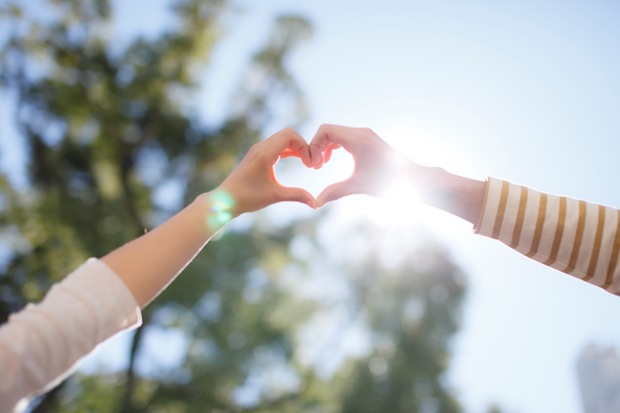
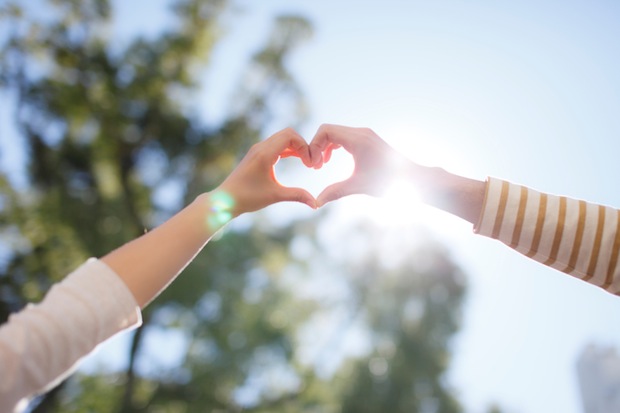
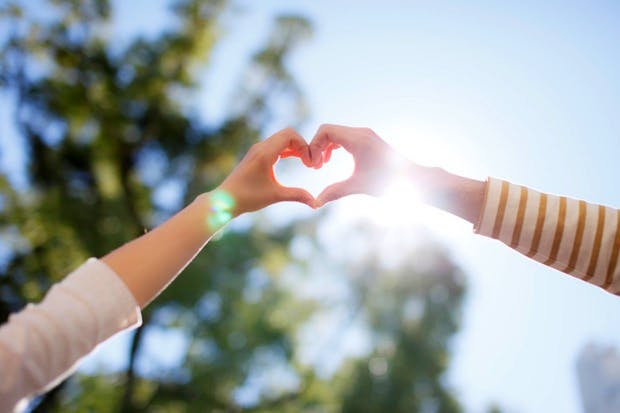






Comments
Don't miss out
Join the conversation with other Spectator Australia readers. Subscribe to leave a comment.
SUBSCRIBEAlready a subscriber? Log in